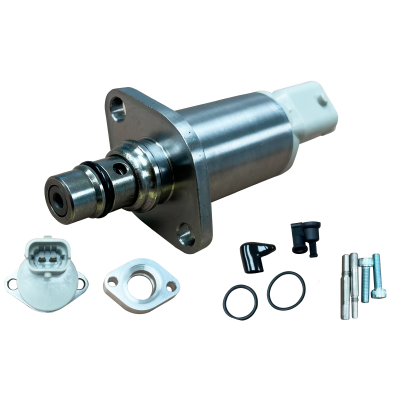An vehicle's efficiency greatly depends on its various components working together effectively, and the suction control valve is a particularly essential component. This compact but important valve has a key role in the control of fuel injection, especially in diesel-powered engines. Its purpose is to control the intake of fuel from the tank, guaranteeing that the engine receives an adequate and steady supply. Grasping how this valve operates and the importance of maintaining it can substantially enhance your car's efficiency and lifespan.
Consistent maintenance of the vacuum control valve can aid avoid issues such as poor engine performance, hard starting, or even cutting out. Neglecting this component can result to costly repairs down the road. In this article, we will discuss crucial maintenance tips that will keep your suction control valve in optimal condition, helping you enjoy a more enjoyable ride and prevent excessive headaches on the road. Regardless of whether you're a experienced mechanic or a novice car owner, these insights will allow you to implement forward-thinking steps in your vehicle maintenance practices.
Functions of the Suction Control Valve
The SCV plays a important role in the functioning of a vehicle's fuel system, especially in diesel-powered vehicles. It regulates the volume of fuel sent to the powertrain by managing the pressure within the fuel delivery system. By regulating the fuel flow, the valve helps ensure that the engine receives the suitable amount of fuel for maximum performance and efficiency.
In furthermore to overseeing fuel supply, the SCV also aids in sustaining the overall integrity of the fuel system. It helps avert issues such as fuel starvation, which can lead to power loss or reduced performance. By ensuring a consistent fuel supply, the SCV contributes to enhanced engine operation and improved drivability.
Furthermore, the SCV is crucial in the vehicle's emission management efforts. By improving fuel delivery, it helps in minimizing exhaust pollutants, thereby improving the vehicle's environmental impact. Keeping the SCV in optimal condition is important not only for powertrain efficiency but also for complying with emissions standards.
Common Problems and Troubleshooting

One common issue with the suction control valve is inadequate engine performance. Symptoms might encompass lowered power, poor acceleration, or stalling. If you encounter these problems, it may indicate that the suction control valve is failing to control the fuel supply efficiently. Checking for error codes using an OBD-II scanner can help discover if the suction control valve is the primary cause of engine problems.
A signal of a faulty suction control valve is a noticeable increase in fuel consumption. If your vehicle is unexpectedly using more fuel than usual, it might be due to the valve not function correctly, leading to an improper air-fuel mixture. To troubleshoot this, observe your fuel usage and check the valve for any apparent signs of damage or wear. Replacing the valve can often resolve high fuel consumption issues.
Finally, if you notice that your vehicle's engine is idling roughly or fluctuating, this could also point to a problem with the suction control valve. An unsteady idle may indicate a vacuum leak or that the valve is not control the fuel flow as it is supposed to. In this case, it is recommended to perform a vacuum leak test and assess the valve to ensure it is operating within the expected parameters. Regular upkeep can help prevent these problems from happening.
Maintenance Effective Practices
Routine inspection of your suction valve is vital to confirm optimal performance. During routine car maintenance, check for any signs of wear or issues, such as breaks or leaks around the valve. Ensure that the electrical connections are secure and free from corrosion, as this can influence the operation of the valve. Spotting issues quickly can avert more severe problems later.
Cleaning the suction control valve at intervals can enhance its effectiveness. Use a proper cleaner to remove any carbon buildup that may interfere with its operation. Be sure to follow the manufacturer's recommendations regarding the cleaning frequency and agents to use. Proper cleaning can prolong the life of the valve and improve the overall performance of your vehicle.
In conclusion, listen for any unusual sounds from your engine, which may suggest issues with the suction control valve. If you detect a sharp change in engine efficiency, have the valve inspected immediately. Being proactive about maintenance can avert potential breakdowns and ensure your vehicle operates effectively.
